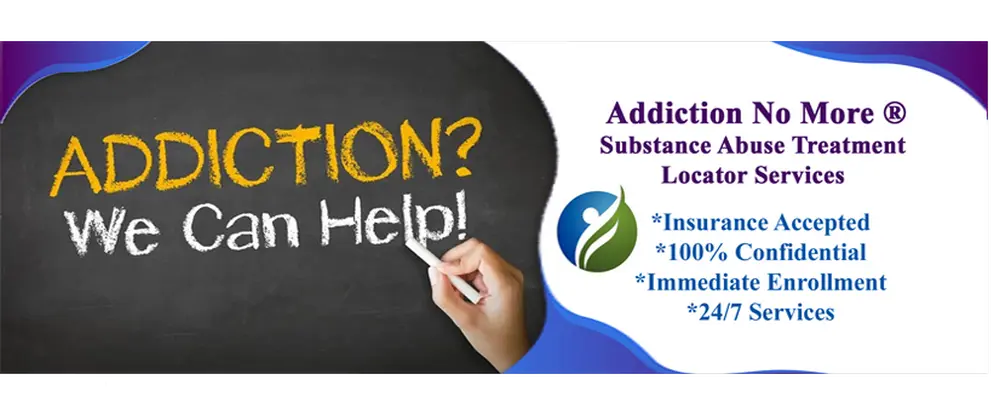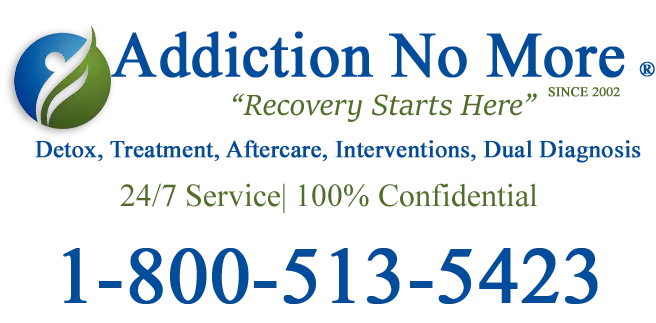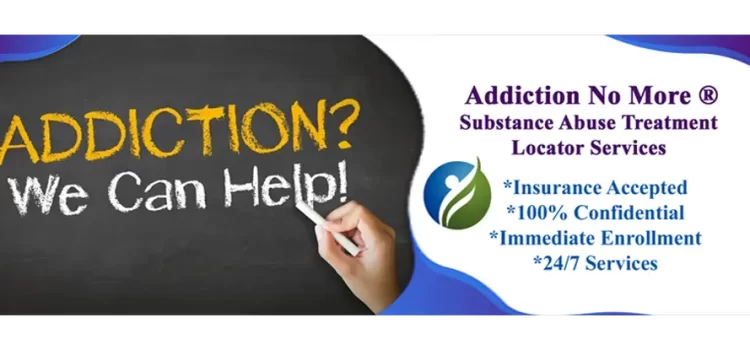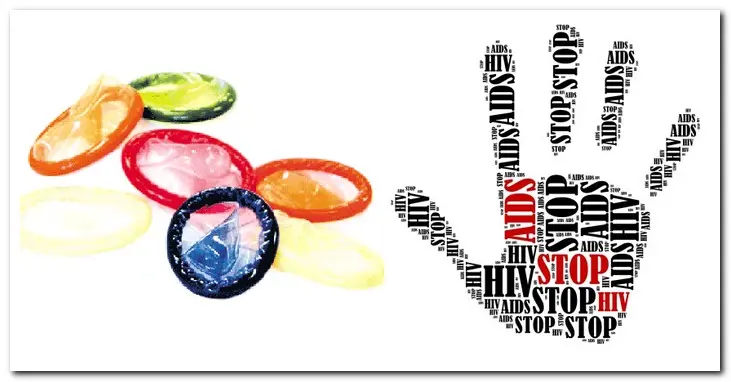How to Reduce Your Risk of Contracting HIV/AIDS?
Drug users should be advised that stopping all drug use, including drug injection, is the most effective way to reduce their risks of contracting HIV/AIDS and other blood-borne diseases, including hepatitis B and hepatitis C. However, not every drug user is ready to stop using drugs, and many of those who stop may relapse.A variety of HIV/AIDS prevention strategies to protect against becoming infected are available for individuals who may be considering or already injecting drugs. These are described in a hierarchy of HIV/AIDS risk-reduction messages, beginning with the most effective behavioral changes that drug users can make.
*Do not share needles, syringes, or other drug-injection equipment
*Use contraceptives during intercourse.
*Stop using and injecting drugs.
*Enter and complete drug abuse treatment, including relapse prevention.
If you continue to inject drugs, take the following steps to reduce personal and public health risks:
*Never reuse or “share” syringes, water, or drug preparation equipment.*Use only sterile syringes obtained from a reliable source (e.g., a pharmacy or a syringe access program).
*Always use a new, sterile syringe to prepare and inject drugs.
*If possible, use sterile water to prepare drugs; otherwise, use clean water from a reliable source (e.g., fresh tap water).
*Always use a new or disinfected container (“cooker”) and a new filter (“cotton”) to prepare drugs.
*Clean the injection site with a new alcohol swab before injecting drugs.
*Safely dispose of syringes after one use.
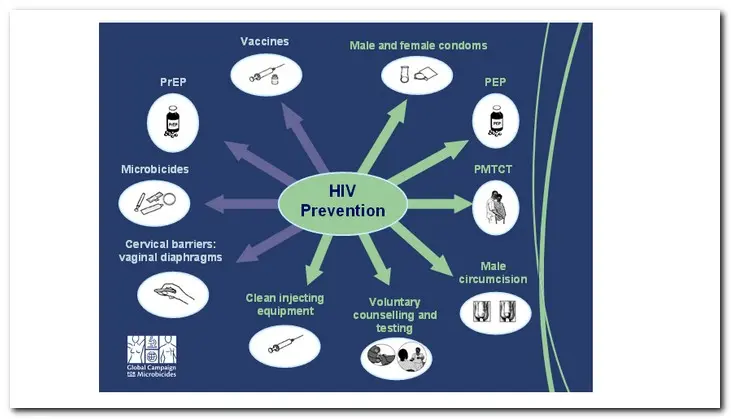
As the hierarchy shows, drug injectors can best reduce their risks by stopping all drug use. If they inject drugs, they should always use sterile supplies and never share them. When this is not possible, cleaning and disinfecting techniques should be considered. Full-strength bleach is the most effective disinfectant when safer options are not available. However, sterile, unused injection equipment is safer than previously used injection equipment disinfected with bleach. Drug users should never share their other injection equipment, such as cookers, pieces of cotton, rinse water, and drug solutions prepared for injection. Sharing these materials presents an important but often overlooked HIV transmission risk. In addition to learning how to make the behavioral changes described in the hierarchy, drug users and their sex partners should be counseled about sexual risks for HIV and other STDs and the importance of avoiding unprotected sex.
Community-based outreach workers, treatment providers, and other public health professionals should use any contact with a drug user as an opportunity to convey these important HIV/AIDS risk-reduction messages. The messages should be delivered along with referrals for testing and counseling services for HIV and other blood-borne infections, drug abuse treatment programs, and other services. If you are looking for rehabs that accept patients who are HIV positive or Gay-friendly rehab centers or treatment facilities that are LGBTQIA+ Friendly, click HERE. You can also call us and we can help you be placed into treatment for addiction right away.
1-800-513-5423
What is the best HIV/AIDS prevention strategy for drug users?
Given the diversity of drug users and their sex partners, no single HIV/AIDS prevention strategy will work effectively for everyone. A comprehensive approach is the most effective strategy for preventing HIV/AIDS and other blood-borne infections in drug-using populations and their communities. A comprehensive approach readily adapts and responds to changing patterns of drug use and HIV/AIDS risk behaviors, to the characteristics of the local setting, and to the varied service needs of drug users and their sex partners. At every contact with a drug user, outreach workers, interventionists, and counselors deliver drug and sex-related risk reduction messages and provide the means to reduce or eliminate their risks for transmitting HIV and other blood-borne infections. A comprehensive approach is the most effective strategy for preventing HIV/AIDS and other blood-borne infections in drug-using populations and their communities.What are the components of a comprehensive HIV/AIDS prevention approach?
The comprehensive HIV/AIDS prevention approach for drug users includes three complementary approaches: community-based outreach, drug abuse treatment, and sterile syringe access programs. Each of these also includes HIV testing and counseling. Community-based outreach is an effective approach for contacting drug users in their local neighborhoods to provide them with the means to change their risky drug and sex-related behaviors. This approach relies on outreach workers who typically reside in the local community and are familiar with its drug use subculture. As a result, they are in a unique position to educate and influence their peers to stop using drugs and reduce their risks for HIV and other blood-borne infections. Outreach workers distribute HIV/AIDS educational information, bleach kits for disinfecting injection equipment when sterile equipment is not available, and condoms for safer sex. They also provide drug users with referrals for drug treatment, syringe access and exchange programs, and HIV, HBV, and HCV testing and counseling.Drug Abuse Treatment
Drug abuse treatment is HIV prevention. Drug users who enter and continue in treatment are more likely than those who remain out of treatment to reduce risky activities, such as sharing needles and injection equipment or engaging in unprotected sex. Drug abuse treatment can be conducted in a variety of settings (e.g., inpatient, outpatient, residential) and often involves various approaches, including behavioral therapy, medications, or a combination of both. The best treatment programs offer their clients HIV testing and counseling and referral to other services. Comprehensive HIV prevention programs can help drug users stop using drugs, change their risk behaviors, and reduce their risks of acquiring or transmitting HIV infection. Sterile syringe access programs complement community-based outreach and drug abuse treatment by providing drug users who will not or cannot seek treatment or who are in treatment but continue to inject drugs with access to sterile syringes and other services. These programs help remove potentially contaminated needles from circulation. They also serve as a bridge to active and out-of-treatment drug users by providing them with HIV/AIDS information and materials (e.g., bleach kits and condoms) to reduce their risks, by offering opportunities for HIV testing and counseling, and by providing referrals for drug abuse treatment and other social services. Hence, it is important that drug abuse treatment and other services are available and accessible to drug users referred by sterile syringe access programs.
Testing and Counseling Services for HIV and Other Blood-Borne Infections
HIV testing and counseling services are an important part of comprehensive HIV prevention programs. These services are most effective when a range of anonymous and confidential testing options are available in diverse, accessible settings (e.g., mobile clinics) and at nontraditional times. The most current, rapid testing technologies can be especially useful. These allow drug users and others at risk to learn their test results as soon as they are available, plan a course of action to stop using drugs and reduce their risk of transmitting HIV to others, and get a referral to appropriate drug abuse treatment and other health services. HIV testing and counseling staff can also inform drug users about their potential risks for contracting HBV and HCV and explain why it is important to be tested for these and other blood-borne and sexually transmitted infections. Staff members are trained to help people who test positive for HIV and/or other infections to inform their drug use and sex partners about their potential risks for infection and the importance of getting testing and counseling. Addiction No More’s free addiction hotline is here to help you find the best treatment option for your situation. We have set up a hotline for those who need to find a good solution for their addiction issues. Sometimes, it may be right for the individual to seek help outside of their area for anonymity and safety issues that sometimes follow a person in treatment. We can help you locate the best rehab center for you today.1-800-513-5423
Sources
HIV.gov
Erik Epp – Content Author
